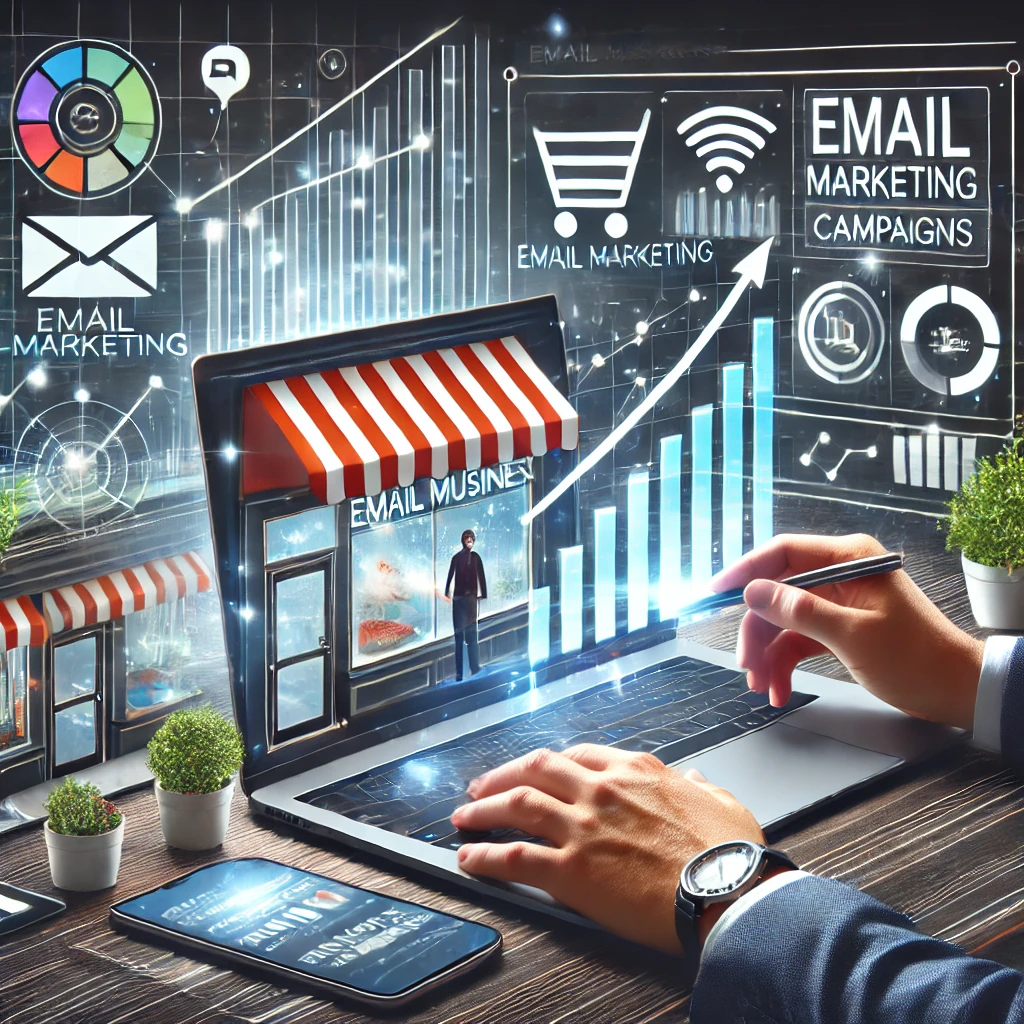
Boosting Your Email Marketing for Increased Small Business Sales
Introduction to Email Marketing for Small Businesses
In today’s competitive landscape, email marketing for small businesses is one of the most cost-effective ways to connect with customers and increase sales. But how do you stand out from the crowd? Let’s explore strategies that will make your emails irresistible to your audience, driving better engagement and, ultimately, more sales!
Why Email Marketing is Essential for Small Business Growth
Building Stronger Relationships with Customers
Emails offer a personal touch that social media can’t always replicate. Through tailored messages, small businesses can nurture relationships with customers, turning one-time buyers into loyal advocates.
Cost-Effective and High ROI
Compared to traditional advertising, email marketing for small businesses delivers one of the highest returns on investment (ROI). When done right, your email list can become a goldmine for boosting sales.
Effective Time Management for Entrepreneurs in Email Campaigns
Why Time Management is Crucial for Email Marketing Success
As an entrepreneur, time management is key. You need to allocate enough time to create effective email marketing strategies that will save you time in the long run. This includes automating email sequences and ensuring regular campaigns that don’t require constant input.
Best Tools for Managing Your Email Marketing
Investing in email marketing tools like Mailchimp, ConvertKit, or ActiveCampaign can help you schedule and automate campaigns, freeing up time to focus on other areas of your business.
Financial Strategies for Startups: Investing in Email Marketing
Allocating Budget for Email Campaigns
Although email marketing is affordable, creating a budget for it ensures that your efforts are sustainable. Whether you're a startup or a seasoned small business, smart financial planning will help you make the most of your resources.
Tracking ROI for Email Campaigns
Track open rates, click-through rates, and conversions to ensure that your investment in email marketing is delivering the desired outcomes. If you’re not seeing results, you may need to adjust your approach or invest in a better tool.
Remote Hiring and Virtual Team Management for Better Email Marketing
Building a Virtual Marketing Team
As your business grows, consider hiring a virtual team to handle your email campaigns. With remote hiring, you can bring in experts in content creation, design, and strategy without the overhead costs of full-time employees.
Organic Growth Strategies to Boost Your Email List
Using Social Media to Drive Subscribers
Social media is a great way to organically grow your email list. By offering exclusive content or discounts to your social media followers in exchange for email signups, you can increase engagement and build a strong email database.
Content Marketing for List Building
Create valuable content like blogs, guides, and eBooks, and offer them for free in exchange for email signups. This method is incredibly effective in attracting high-quality leads who are genuinely interested in your products or services.
Sustainability in Small Business Email Marketing
Building Long-Term Relationships with Your Subscribers
Sustainability doesn’t just apply to your products; it should also apply to your email marketing. Keep your subscribers engaged with consistent, relevant content that nurtures trust and encourages loyalty.
Digital Transformation for Traditional Businesses through Email Marketing
Modernizing Your Marketing Approach
If you run a traditional business, digital transformation might sound daunting. However, email marketing can be an easy and effective way to modernize your strategy, reaching a wider audience at a fraction of the cost of traditional methods.
Pricing Strategies for Digital Products in Email Campaigns
Effective Pricing Strategies to Convert Subscribers
When promoting digital products through email campaigns, effective pricing strategies are key. Offering tiered pricing or limited-time discounts can drive urgency and increase conversions.
Personal Branding for Entrepreneurs through Email Marketing
Showcasing Your Expertise and Personality
Personal branding is essential for small business owners. Your email campaigns are a great opportunity to showcase your expertise, share personal stories, and connect with your audience on a deeper level.
E-commerce for Local Businesses: Leveraging Email Marketing
How Email Marketing Can Increase Local Sales
Email marketing is especially beneficial for local businesses, allowing you to promote offers, events, or new products directly to customers in your area.
Conclusion: The Power of Email Marketing for Small Business Growth
Email marketing is one of the most potent tools in your small business toolkit. With the right strategies in place, you can grow your customer base, boost sales, and create long-lasting relationships with your audience. By embracing time management, financial strategies, and digital transformation, your email campaigns can become the driving force behind your business's success.
FAQs
1. How do I get started with email marketing for my small business?
Begin by choosing an email marketing platform, creating a strategy, and gathering a list of interested subscribers. From there, you can send regular emails offering value to your audience.
2. How can I improve my email open rates?
Make your subject lines compelling, segment your audience for more personalized content, and ensure your emails are mobile-friendly.
3. What’s the best way to grow my email list?
Offer incentives like discounts, free resources, or exclusive access in exchange for email signups. Social media and your website are also great tools for list building.
4. Can email marketing work for e-commerce businesses?
Absolutely! Email marketing can help e-commerce businesses send personalized offers, promotions, and cart abandonment reminders to drive conversions.
5. How do I balance time management with email marketing campaigns?
Use automation tools to streamline your email marketing tasks, allowing you to focus on other aspects of your business while still maintaining regular communication with your audience.